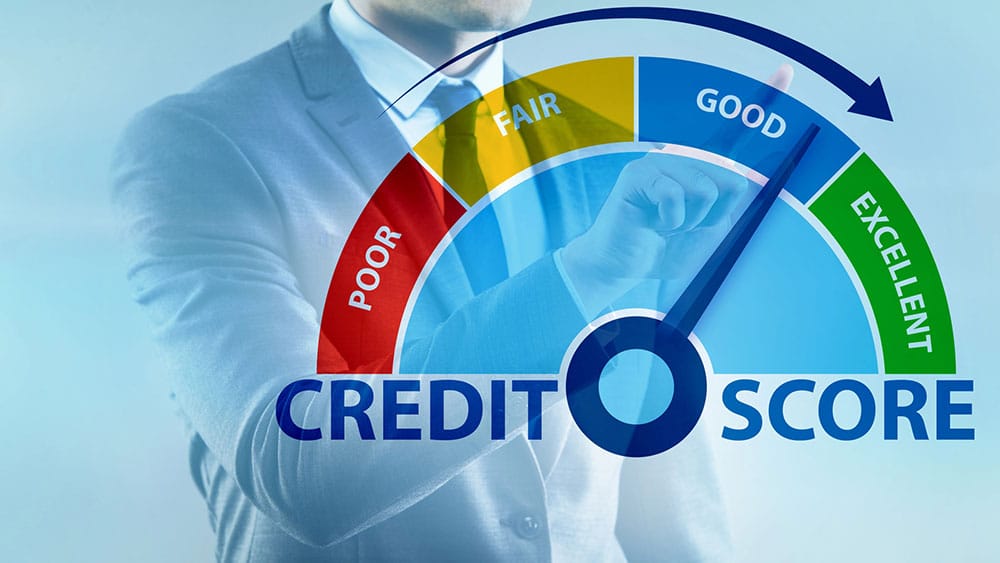Your credit score is a crucial factor in determining your eligibility for a mortgage and the interest rate you’ll receive.
This in-depth guide explores the intricate relationship between credit scores and mortgages, providing valuable insights to help you understand how your credit impacts your homeownership journey.
Understanding Credit Scores and Mortgage Eligibility
Your credit score is a numerical representation of your creditworthiness, serving as a critical factor in a mortgage lender’s evaluation of your loan application.
This section delves into the intricacies of credit scores, their significance in mortgage lending, and how they ultimately influence your ability to secure a home loan.
What is a Credit Score?
A credit score is a three-digit number, typically ranging from 300 to 850, that summarizes your credit risk based on information compiled in your credit report. The higher your score, the lower the risk you pose to lenders.
Several factors contribute to the calculation of your credit score, including:
- Payment History: This is the most influential factor, reflecting your track record of paying bills on time. Late payments, collections, and bankruptcies can significantly lower your score.
- Credit Utilization refers to the percentage of available credit you currently use. High credit utilization suggests potential overreliance on credit and can negatively impact your score.
- Length of Credit History: A longer credit history generally demonstrates greater credit experience and responsibility, contributing positively to your score.
- Credit Mix: A diverse mix of credit accounts, such as credit cards, installment loans, and mortgages, can indicate responsible credit management and improve your score.
- New Credit: Opening multiple new credit accounts within a short period can signal increased risk and may lower your score.
Credit bureaus, namely Equifax, Experian, and TransUnion, are responsible for collecting and maintaining credit information, generating credit reports, and calculating credit scores.
Why Credit Scores Matter to Mortgage Lenders
Mortgage lenders rely heavily on credit scores to assess the creditworthiness of prospective borrowers. A higher credit score indicates a lower likelihood of defaulting on loan payments, making you a more attractive candidate for a mortgage.
Here’s how credit scores influence the mortgage process:
- Loan Approval: Lenders often set minimum credit score requirements for different loan programs. Failure to meet these requirements can result in loan application denial.
- Interest Rates: Credit scores are crucial in determining the interest rate offered on a mortgage. Borrowers with higher scores typically qualify for lower interest rates, resulting in significant savings over the life of the loan.
- Loan Terms: Favorable credit scores can unlock better loan terms, such as lower down payment requirements or more flexible repayment options.
How Your Credit Score Affects the Mortgage Interest Rate
The correlation between credit scores and mortgage interest rates is undeniable. Even a tiny difference in your score can translate to substantial variations in interest rates and overall loan costs.
A higher credit score signals lower risk to the lender, enabling them to offer more competitive interest rates. This translates to lower monthly payments and reduced total interest paid over the loan term.
Conversely, lower credit scores may lead to higher interest rates, increasing borrowing costs and potentially hindering affordability.
Improving Your Credit Score for Mortgage Approval
A strong credit score is a cornerstone of mortgage approval and favorable loan terms. If your credit score needs improvement, proactive steps can enhance your creditworthiness and increase your chances of securing a mortgage.
This section outlines practical strategies to boost your credit score and navigate the path to successful homeownership.
Checking Your Credit Report
Before embarking on credit improvement, it’s essential to obtain a comprehensive understanding of your current credit standing. You can access free credit reports from each of the three major credit bureaus (Equifax, Experian, and TransUnion) annually through AnnualCreditReport.com.
Carefully review your reports for any inaccuracies, such as incorrect personal information, accounts that don’t belong to you, or errors in payment history. If you identify any discrepancies, promptly dispute them with the respective credit bureau to ensure your credit report accurately reflects your credit history.
Strategies to Boost Your Credit Score
Improving your credit score requires consistent effort and responsible credit management. Here are key strategies to elevate your score:
- Make On-Time Payments: Consistently paying all bills on time, including credit cards, utilities, and loans, is crucial for building a positive credit history. Set up payment reminders or automate payments to avoid late fees.
- Reduce Credit Card Balances: High credit utilization can negatively impact your score. Aim to keep your credit card balances below 30% of your available credit limit, and strive for even lower utilization for optimal results.
- Maintain Length of Credit History: The length of your credit history demonstrates your experience managing credit. Avoid closing old credit accounts, even if you no longer use them, as they contribute to the age of your credit history.
- Avoid Opening Too Many New Accounts: Opening multiple new credit accounts within a short period can signal increased risk and may lower your score. Apply for new credit only when necessary.
- Become an Authorized User: If you have a trusted friend or family member with excellent credit, consider becoming an authorized user on their credit account. This can positively impact your credit score, provided the account is managed responsibly.
How Long Does it Take to Improve Your Score?
The time it takes to improve your credit score varies depending on several factors, including the severity of negative items on your report, the consistency of positive credit behaviors, and the scoring model used.
While some improvements may be reflected within a few months, significant credit repair can take longer. Setting realistic expectations and maintaining consistent efforts over time to achieve your desired credit score is essential.
Mortgage Options for Different Credit Scores
While a higher credit score generally unlocks more favorable mortgage terms, various loan programs cater to borrowers across a spectrum of credit profiles. Understanding the mortgage landscape for different credit score ranges can help you identify suitable options and navigate the home financing process effectively.
Excellent Credit (740 and above)
Borrowers with excellent credit scores are considered prime candidates by mortgage lenders. This creditworthiness translates to significant advantages in the mortgage market:
- Lowest Interest Rates: Excellent credit qualifies you for the most competitive interest rates available, resulting in substantial savings on monthly payments and overall loan costs.
- More Comprehensive Loan Options: A high credit score expands access to a broader range of loan programs, including conventional loans with favorable terms and potentially lower down payment requirements.
- Negotiating Power: Strong credit provides leverage to negotiate with lenders and secure the best possible loan terms tailored to your financial situation.
Good Credit (670-739)
A good credit score positions you well within mortgage eligibility, opening doors to various loan options and competitive interest rates.
- Favorable Interest Rates: While not as low as those offered to borrowers with excellent credit, good credit still secures favorable interest rates, contributing to manageable monthly payments and overall affordability.
- Loan Program Eligibility: You will likely meet the credit score requirements for most loan programs, including conventional, FHA, and VA loans, providing flexibility in choosing a mortgage that aligns with your needs.
Fair Credit (620-669)
Borrowers with fair credit scores may face some limitations in mortgage options and potentially higher borrowing costs. However, homeownership remains attainable with careful planning and consideration.
- Meeting Minimum Requirements: A fair credit score typically meets many lenders’ minimum credit score requirements, though you may encounter stricter qualification criteria.
- Higher Interest Rates: Expect potentially higher interest rates than borrowers with good or excellent credit. This can increase your monthly payments and overall loan costs.
- Loan Program Considerations: Explore loan programs with more lenient credit score requirements, such as FHA loans, designed for borrowers with less-than-perfect credit.
Poor Credit (Below 620)
Securing a mortgage with poor credit can be challenging but not impossible. Specialized loan programs and credit-building strategies can pave the way to homeownership.
- Exploring Alternative Options: Consider government-backed loans like FHA, which may accept credit scores as low as 500 with a larger down payment. Subprime mortgages may also be an option, but proceed cautiously due to their potentially high interest rates and fees.
- Credit Counseling and Repair: Seek guidance from reputable credit counseling agencies to develop a credit repair plan and improve your creditworthiness over time.
- Focusing on Credit Building: Prioritize improving your credit score before applying for a mortgage. Demonstrate responsible credit behavior by making on-time payments, reducing debt, and maintaining low credit utilization.
Beyond Credit Scores: Other Factors Affecting Mortgage Approval
While your credit score is a primary factor in mortgage lending, it’s not the sole determinant of approval. Lenders employ a holistic approach, considering various financial aspects to assess your ability to repay a mortgage.
This section explores the key factors beyond credit scores that influence your mortgage application.
Debt-to-Income (DTI) Ratio
Your debt-to-income (DTI) ratio is a crucial metric that compares your monthly debt obligations to your gross monthly income. It gives lenders insight into your ability to manage existing debt while taking on a new mortgage.
- Calculating DTI Ratio: A DTI ratio is calculated by dividing your total monthly debt payments (including credit cards, loans, and potential mortgage payments) by your gross monthly income.
- Importance in Qualification: A lower DTI ratio indicates greater financial capacity to handle mortgage payments, increasing your chances of approval. Lenders typically prefer a DTI ratio below 36%, though some may allow higher ratios depending on compensating factors like strong credit or substantial assets.
- Strategies to Lower DTI Ratio: To improve your DTI ratio, consider reducing existing debt through debt consolidation or balance transfers or increasing your income through additional employment or salary negotiations.
Employment History and Income
Stable employment and consistent income are vital for mortgage approval. Lenders seek assurance that you have a reliable source of funds to meet your mortgage obligations.
- Proof of Stable Income: Be prepared to provide documentation verifying your employment history and income, such as pay stubs, W-2 forms, or tax returns.
- Meeting Lender Requirements: Lenders often require a minimum employment history, typically two years of consistent employment in the same field or industry. Self-employed individuals may need additional documentation, such as profit and loss statements or business tax returns.
Down Payment and Assets
The size of your down payment and overall asset profile contribute to your financial stability and influence your mortgage approval.
- Importance of Down Payment: A larger down payment reduces the lender’s risk and can lead to more favorable loan terms, including lower interest rates and reduced private mortgage insurance (PMI) requirements.
- Demonstrating Sufficient Reserves: Lenders assess your cash reserves to ensure you have funds to cover closing costs, potential property taxes, and homeowner’s insurance. Sufficient reserves demonstrate your financial preparedness for homeownership.
Understanding these factors and optimizing your financial profile can strengthen your mortgage application and increase your likelihood of securing a home loan, even if your credit score isn’t perfect.
Closing Points
Your credit score plays a significant role in your ability to obtain a mortgage and secure favorable loan terms. Understanding how credit scores impact mortgage eligibility and improving your credit health can increase your chances of achieving your homeownership goals.
© 2024 xpertRealtyMarketing.



